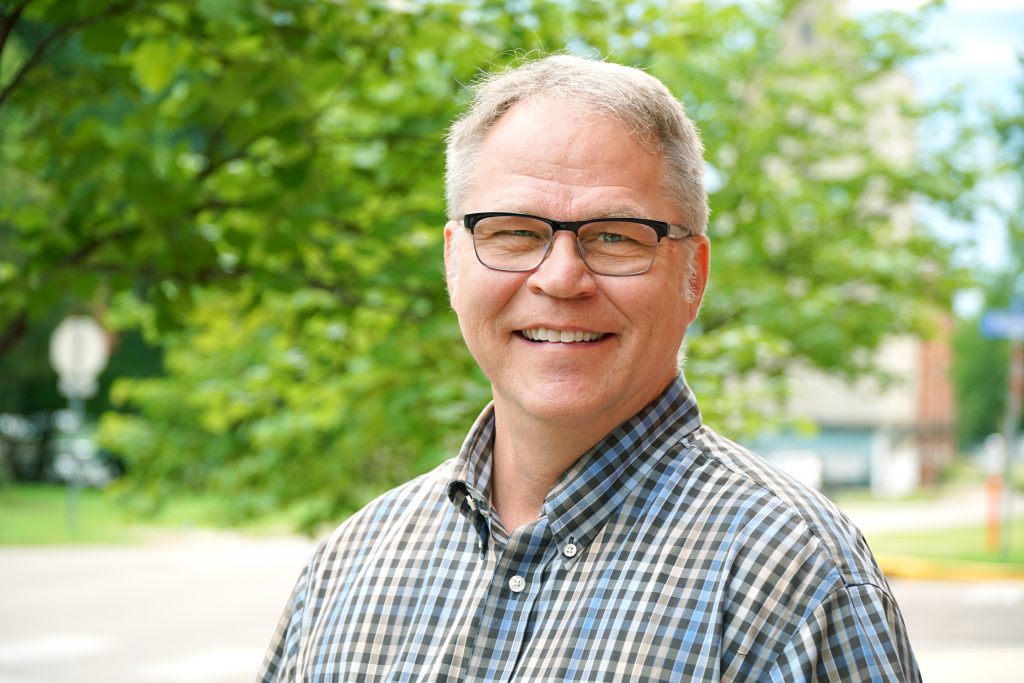Drew Brooks – Faith Partners Director
“We teach best what we most need to learn” – Richard Bach, Author of “Illusions: The Adventures of a Reluctant Messiah”
Transitioning out of the pandemic has been at the forefront of many people’s minds, especially the faith community. We are trying to figure out what the “new normal” will be in our churches, synagogues, and temples. It seems that people are slowly coming back to worship – yet the possibility of doing ministry or serving the congregational community is more elusive.
There still seems to be uncertainty and hesitation for some, while others are running head long into their past routines and practices or have re-evaluated it all and are doing things differently. One thing for certain during this extended period of quarantine and isolation, people felt disconnected from their daily routines and habits. Some of us felt a little detached from our spiritual communal rituals (weddings, funerals, worship services, sacraments, group Bible/Sacred Text study, etc.). Others have replaced them with individualized practices, such as; contemplative prayer, meditation, yoga, walking in nature, to name a few.
I have also observed an initial feeling of disconnect with myself and community as we re-enter society. It was like we needed to relearn those social subtleties and public niceties that most people in society practiced before the pandemic. Many of us have re-evaluated and/or re-prioritized our lives concerning our work, family, volunteerism, hobbies, and community connections.
The question still stood, “how do we reconnect with ourselves and community in a thoughtful, intentional way?” This is especially true with the new reality of greater needs and gaps of service for individuals and families with the rise in addiction and mental health issues for adolescents and adults alike.
During this pandemic, I connected with Vicki Elliott, Executive Director of Mental Health Connect, a collaborative ministry of local faith communities based out of Bethlehem Lutheran Church in the Twin Cities. She was pondering the same questions and we decided to develop a 6-session virtual series on “deep listening”, which was well-received. It was just what the doctor ordered – a “God thing”.
Many years ago, there was a Gallop Poll asking individuals, “do you have someone in your life that you are concerned about?” – 94% of the respondents said “yes”. Yet, only 38% of those respondents actually did anything about it. I believe the problem is that they just didn’t know how to respond to their friends, relatives, neighbors, colleagues around them. The development of this virtual series got my creative juices flowing with the inspiration to use the sharing concern skill as a framework.
This transition has revealed many opportunities to address those suffering from mental health issues and others tapping into addictive behaviors with the additional need to reconnect to ourselves and others in our community. It seemed like a perfect time to re-learn a set of skills that would provide a wonderful structure to reach out to people we are concerned about in your life.
The first skill: Compassion Skills (I Care…) was a great place to start. It speaks to the wisdom of the larger Sharing Concern Skill. It is all about bringing to our attention those suffering around us and ultimately, being moved to act to relieve their suffering. We also touched on compassion fatigue and self-care to balance these responses with clarity and replenishment.
The second skill: Observational Skills (I See…) considers both verbal and nonverbal communication to see if they are congruent or in harmony. The other aspect of this skill is looking for specific observable behaviors that cause concern. This bridges us to communicate our compassion and care.
The third skill: Affective Skills (I Feel…) reveal how our emotions are teachers that inform us about a situation and help motivate us to act. We explored the influence of culture and family on our emotional understanding and vocabulary. Understanding how feelings influence our behavior creates a space to listen by becoming a non-anxious presence for other people’s lives.
The fourth skill: Active Listening (I Listen…) is not just a series of techniques and strategies, but a person’s own functioning and ability to show up in that moment. Equally important is knowing what to listen for without tapping into our biases and making it all about us.
The fifth skill: Managing Expectations (I Want…) is recognizing our own needs and expectations in these interactions. Being realistic about these expectations allows us to let go of them or at least be realistic about them as we are listening to others.
Finally, the sixth skill: Setting Boundaries (I Will…) is all about knowing where our responsibility begins and ends in our relationships with others. God provides a wonderful model for boundaries in leaving work for us to do and respecting our ability to say no without controlling or nagging us. God is a giver. And one of the things God gives is a choice, but like a real giver, God also gives the consequences of those choices. God respects boundaries.
We all gave each other a gift in walking through this “deep listening” series. How to navigate this transition out of the pandemic and meet people in their experience was right there in front of us through teaching and learning these different skills. We all began to reconnect with ourselves and with the community of listeners around us. I realized that we teach best what we most need to learn.
Drew Brooks is Executive Director of Faith Partners, a national organization that equips people of faith to serve with an informed, compassionate response to the risk and prevalence of addiction.

